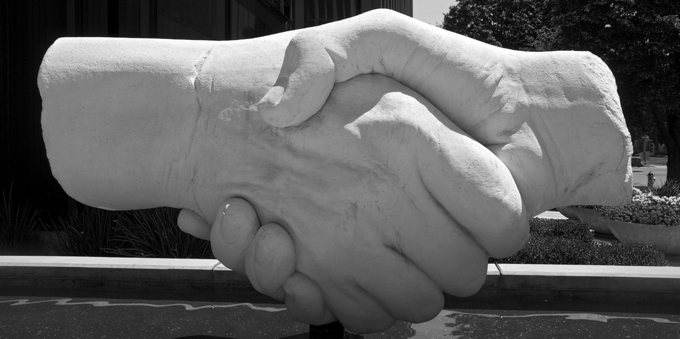You can’t always get what you want
I recently had a discussion with a group of politics students about proportional representation and whether it could be one obvious way to restore political engagement and political trust. When one student pointed out that the 1950s saw way higher...
I recently had a discussion with a group of politics students about proportional representation and whether it could be one obvious way to restore political engagement and political trust. When one student pointed out that the 1950s saw way higher turnout than we have today, I noted, in response, that there were really only two political parties at that time: Labour and the Conservatives, and that most people were tribally wedded to one or the other.
Today, the situation is very different. Fewer people tell pollsters that they’re always going to vote for one party, and the ‘others’ section on opinion poll graphs just keeps growing.
Just as traditional ways of life have been broken down, so have traditional tribal affiliations. We’re a more diverse people in every aspect of our lives, including politically. To my mind that’s a very healthy thing – although I understand if those who still follow the two parties that dominated the 20th century find it harder to swallow.
‘Coalition’ might be a word that has acquired an unfortunate connotation in the past two and a half years, but the odds of more of them in our future look to be high, even with first past the post.
The case of the Bristol mayoralty – where an independent was elected (in a region where, incidentally, there’s also a new independent police and crime commissioner) – is a demonstration both of voters’ new independent spirit, and the difficulties the largest parties can have in dealing with it. Local Labour councillors were keen to join the independent mayor’s rainbow cabinet, but this was ruled out by the national executive committee (NEC). A Green councillor, Gus Hoyt, is by contrast in the cabinet, and this isn’t just a reflection of a far more decentralised, democratic party: it’s also a reflection of how we look at power-sharing, at influence and at effectiveness.
It’s not just Greens of course – Plaid Cymru and the SNP also look and sound far more comfortable in fluid situations that aren’t straight-up ‘here’s your mandate, single party, off you go’.
It’s been interesting how many journalists and voters have said to me , since Ed Miliband came out with his promotion of the living wage recently, ‘aren’t you upset about Labour stealing your policies?’ (Although he didn’t go nearly as far as we like and call for the minimum wage to be a living wage.)
They’re invariably surprised my answer is ‘no’. We’re in politics to get what we regard as the right policies in place and we see the advance of this traditional Green party policy – as pushed particularly by Green London assembly members Jenny Jones and Darren Johnson – as a victory. We’re hoping for something similar on renationalising the railways.
This winter, the final struggles on a couple of key issues – most critically the energy bill and the groceries code adjudicator – are taking place in parliament, and Green MP Caroline Lucas has been working with any allies available – yes, even some Tories, and more than the odd Lib Dem, as well as on many issues with Labour MPs.
As the Green party, we’re seeking to grow our elected representation: in councils, in Brussels and in Westminster. We are comfortable with the fact that we’ll be working in shifting, varied and flexible groups, both inside electoral politics, and outside it. Groups ranging from UKUncut to Occupy, trade unions to and anti-cuts groups, Transitions Towns to the RSPB.
We know broadly what we’re going to bring to the table: we have to live within the limits of our one planet, and that we need to spread the wealth of Britain far more fairly, for all of our sakes.
But we’re comfortable with understanding that the way we’ll get to where we want will often be roundabout and will sometimes involve being prepared to step back and let another take the limelight. (I think of a Green group council leader in a Tory fiefdom who explained to me how he had to make sure ideas didn’t get labelled “Green” because then they’d never be implemented, no matter how cost-saving or obviously sensible.)
As well as Green policies, one of the things we bring to the table is that ‘you can’t always get what you want’, but you can get more than if you’d taken your bat and ball and gone home. Even more positively, we acknowledge that with consensus-driven, collaborative decision-making, you often get better results than when one group just ploughs off in its own direction.
This article first appeared in the Winter 2012 Fabian Review.
